
Team perspectives on research, commodity trade-offs, and environmentalism in general.
Max J. Burns
 Prior to working on this ELO, I had no experience with any project of this scale, or with data examination in general. When we began working in the fall, it was the first time that I had even opened an Excel spreadsheet! This has been an excellent way to learn more about environmental science through hands-on work, I now feel that I have a far better grasp of what exactly work in this field entails; both in terms of how to find trends in data, and how to effectively present those trends to a reader. This project has also significantly improved my understanding of agricultural production systems in general, especially for beef, my commodity. I was peripherally aware of the wasteful nature of cattle from courses in high school, but I now feel that I have a far better understanding of the problems associated with beef production. I’ve gained more than just an insight into the global impacts of cattle farming, I have also learned details about the local consequences of beef production that directly impact communities. In future discussions about agriculture and the associated pollution, I feel prepared to explain why cattle are wasteful, supported by what I have learned and worked on in the past months. But I’ve learned about far more than just data visualization and agriculture, this project has also been a great way to gain experience working with a team. We’ve found how to best utilize our individual strengths and experience, by dividing tasks properly and helping each other however we can. Our team has also grown into more than just a group of students working on a project, over the past few months we developed strong friendships, and a great sense of community. And all the while, we have been supported by our two incredible mentors, Emily and Gabi. This project seemed daunting and even overwhelming at times, but our mentors have always been there to guide us, and to help us develop our work into a final product. Anytime that we needed help with something, or were confused by a strange trend, they were both just a message away, which really helped this ELO become the fantastic learning experience that it was. Overall, I’m incredibly thankful that I had the opportunity to work on this project, and feel prepared (and excited!) to pursue similar work in the future.
Prior to working on this ELO, I had no experience with any project of this scale, or with data examination in general. When we began working in the fall, it was the first time that I had even opened an Excel spreadsheet! This has been an excellent way to learn more about environmental science through hands-on work, I now feel that I have a far better grasp of what exactly work in this field entails; both in terms of how to find trends in data, and how to effectively present those trends to a reader. This project has also significantly improved my understanding of agricultural production systems in general, especially for beef, my commodity. I was peripherally aware of the wasteful nature of cattle from courses in high school, but I now feel that I have a far better understanding of the problems associated with beef production. I’ve gained more than just an insight into the global impacts of cattle farming, I have also learned details about the local consequences of beef production that directly impact communities. In future discussions about agriculture and the associated pollution, I feel prepared to explain why cattle are wasteful, supported by what I have learned and worked on in the past months. But I’ve learned about far more than just data visualization and agriculture, this project has also been a great way to gain experience working with a team. We’ve found how to best utilize our individual strengths and experience, by dividing tasks properly and helping each other however we can. Our team has also grown into more than just a group of students working on a project, over the past few months we developed strong friendships, and a great sense of community. And all the while, we have been supported by our two incredible mentors, Emily and Gabi. This project seemed daunting and even overwhelming at times, but our mentors have always been there to guide us, and to help us develop our work into a final product. Anytime that we needed help with something, or were confused by a strange trend, they were both just a message away, which really helped this ELO become the fantastic learning experience that it was. Overall, I’m incredibly thankful that I had the opportunity to work on this project, and feel prepared (and excited!) to pursue similar work in the future.
Anushree Chaudhuri
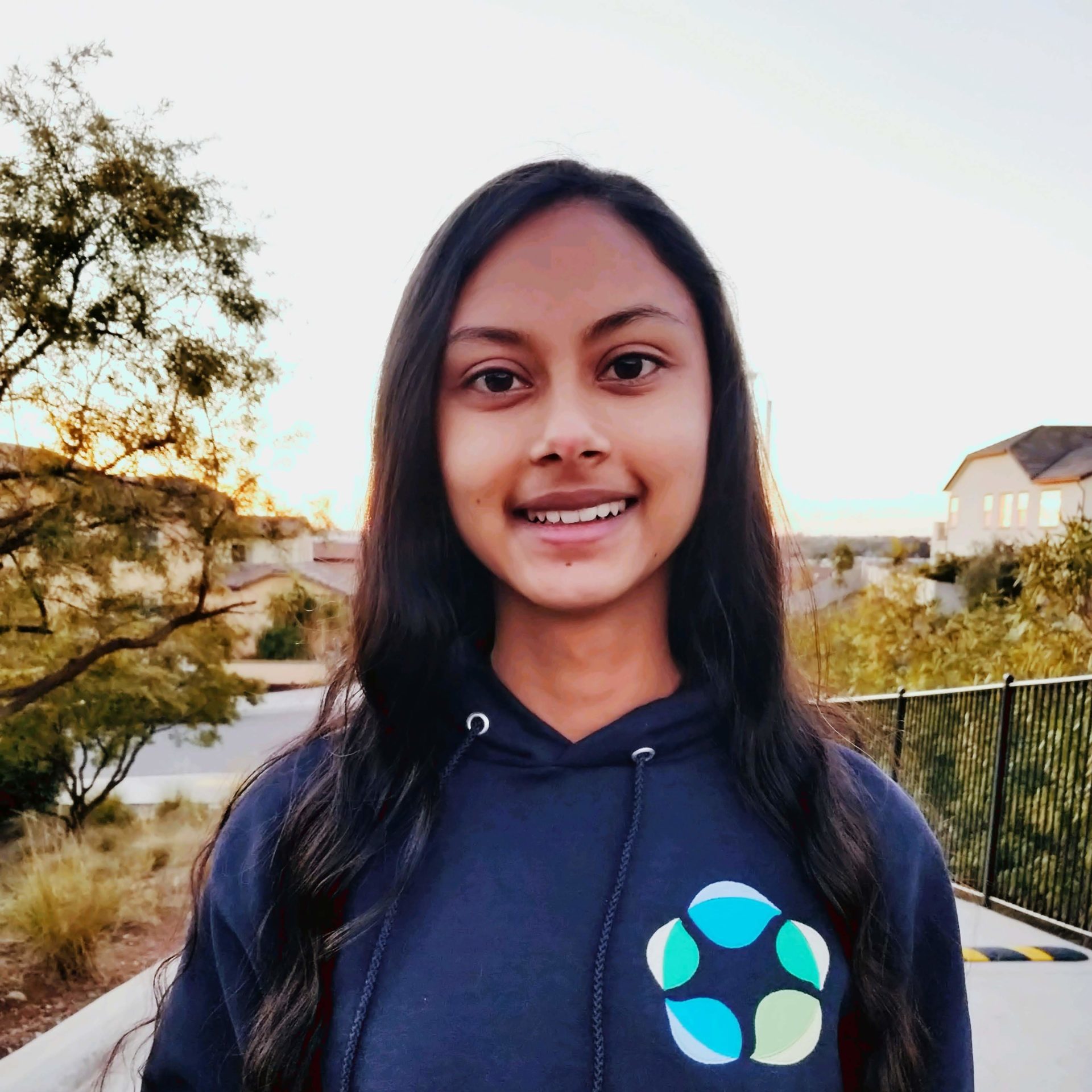
Since I hadn’t done much sustainability-related research in high school, I was excited to gain a set of like-minded peers at MIT and insight from experts in the field going into this project. This project was a valuable way to test my abilities in independent learning, time management, and prioritization.
I’ve never thought of myself as a “coder,” so initially I was intimidated by the prospect of creating a feature-rich, interactive web app to visualize our data. I remember feeling overwhelmed after the first twenty-or-so hours reading through extensive Python and Streamlit documentation, understanding the basics of HTML and CSS, and taking a few command line courses. Initially, every time I would run into a bug, I became frustrated that even after looking through dozens of Stack Overflow threads, I wasn’t able to figure out how to fix the issue. After recruiting the help of a more experienced friend and developing a systematic, logical, and patient approach to debugging, I started feeling more confident and calm in catching errors. It took me an embarrassingly long time—more than 100 hours—to finally create a working version of the tool. I recognize that this is much longer than it would have taken any “real” coder, but the experience taught me the importance of persistence, even when persisting is the most frustrating thing to do, and ultimately made me realize that I am capable of starting out from scratch and continuing to an end product in an area that I have no background in.
I’ve always regretted not spending more time on learning programming, because it is so useful regardless of what field you’re in. At the same time, I’ve always avoided taking on programming classes and projects because I fear failure in an environment where everyone else is more experienced than I am. This experience made me realize the importance of data visualization in environmental and policy work, which is what I hope to pursue in the future. Thanks to this project, I’m planning to take 6.859 (Interactive Data Visualization) next semester, and aspiring to change my tendency of shying away from data science classes within my potential considerations for technical majors: environmental engineering, materials science and engineering, and economics.
I’m so grateful to have gained a wonderful network of friends through this project and the Terrascope learning community. As I’ve gotten to know my peers better, I am constantly so impressed and inspired by their compassion, curiosity, genuineness, dedication, and supportiveness. They’re truly some of the best people I’ve met at MIT so far. I’m excited for road trips to corn fields in a post-COVID future and to see many familiar faces in sustainability-related classes and clubs in the next three years.
Yeji Cho
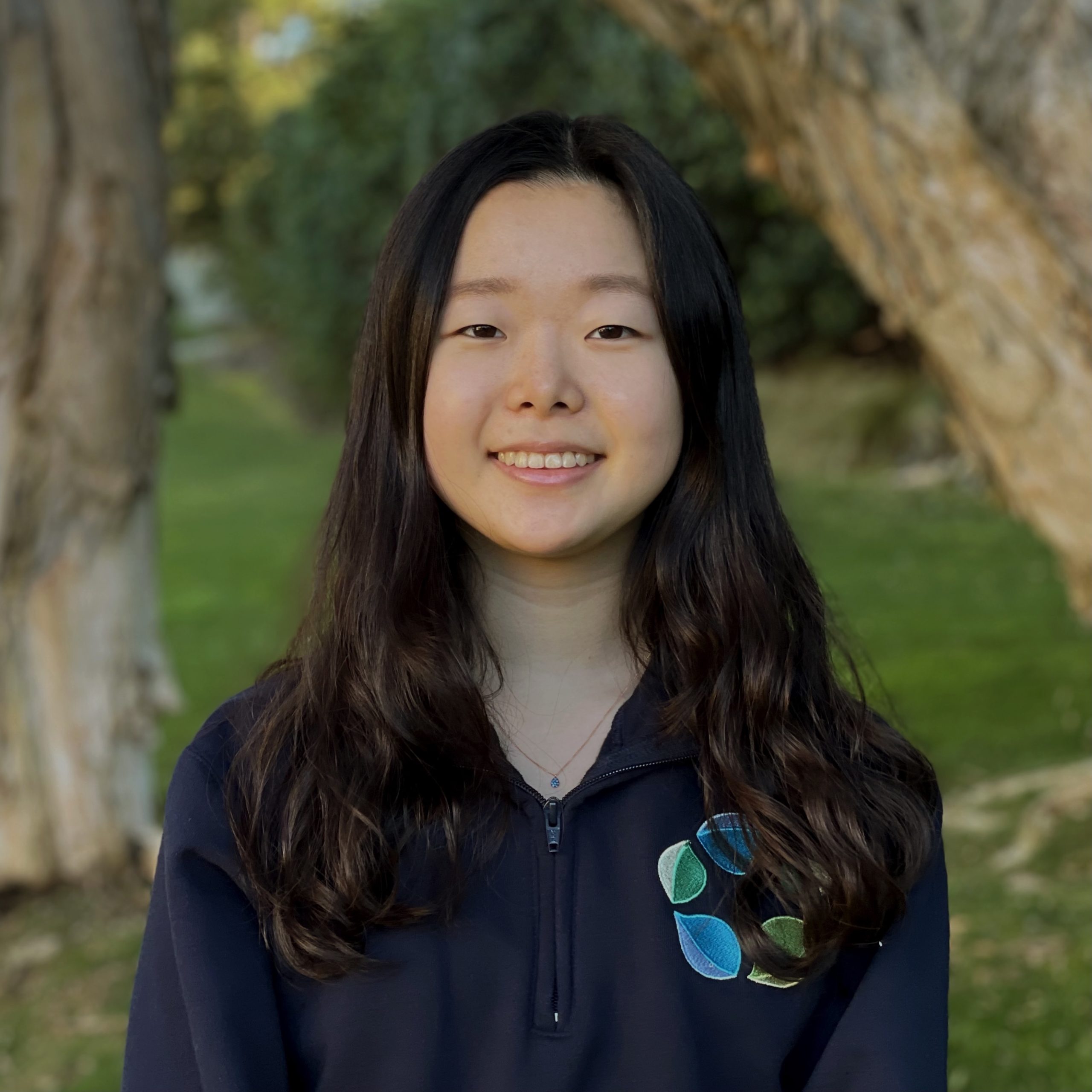
Last summer, this project team and I met online, through channels created for our Terrascope first-year learning community. We were all incredibly excited to enter the world of opportunities at MIT, and when we received an email about the chance to design our own ELO, this group coalesced through countless Zoom calls. At the beginning of this project, I think that we were somehow both under- and over-ambitious, creating grandiose proposals, but still a little doubtful that any of this would come to fruition. One of the most rewarding aspects of this project has been watching it grow into something very tangible and impactful, alongside the experience of producing work we did not even know we were capable of.
Prior to entering MIT, my research experience focused on very small-scale projects, both literally and figuratively. I studied individual species of microalgae, and carried out projects where I was responsible for every stage of the research. Participating in a larger project like this one was an entirely new experience for me. The scope of our research, covering global agricultural systems across ten different commodities, was already beyond any work I could have done alone, and the data collection, analysis, and writing that followed was just as intensive. Similarly, I also had to adapt to working with data that I had not collected. Producing cohesive outputs from the research of dozens of scientists across the world involved a whole new set of challenges, and I deeply enjoyed the learning that accompanied it. The design of this project allowed me to gain an overarching understanding of agricultural supply chains, then to dig deeper into the specific characteristics of the wild-caught tuna industry, where I could draw more unique and interesting conclusions.
Beyond the understanding of agricultural systems gained through this project, I feel that I have learned an incredible amount about the diversity of sustainability efforts. Environmental issues are a truly global problem, and as someone deeply passionate about this field, I think it can be easy to get stuck in one way of thinking. This project drastically opened my eyes to the interconnectedness of global systems—a fisherman in Japan might catch tuna that is shipped miles inland, then transported across the world to Europe or the Americas, and so on and so forth. I learned that sustainability also looks different in different places. The most fuel efficient fishing vessel in the Americas might not compare to the methods of local, small-scale fishers elsewhere, and this sort of diversity needs to be embraced in order to have a successful global push for sustainability. I hope to use what I have learned in this project as I continue my study of environmental and earth science, and to continue to keep an open mind about new ideas and innovation.
Finally, I would like to thank Emily, Gabi, and each of my teammates, for all of their incredible contributions to this project. It has been amazing to be a part of such a smart and capable group of people, and I look forward to continuing my work with them in the future.
Nicole E. Harris
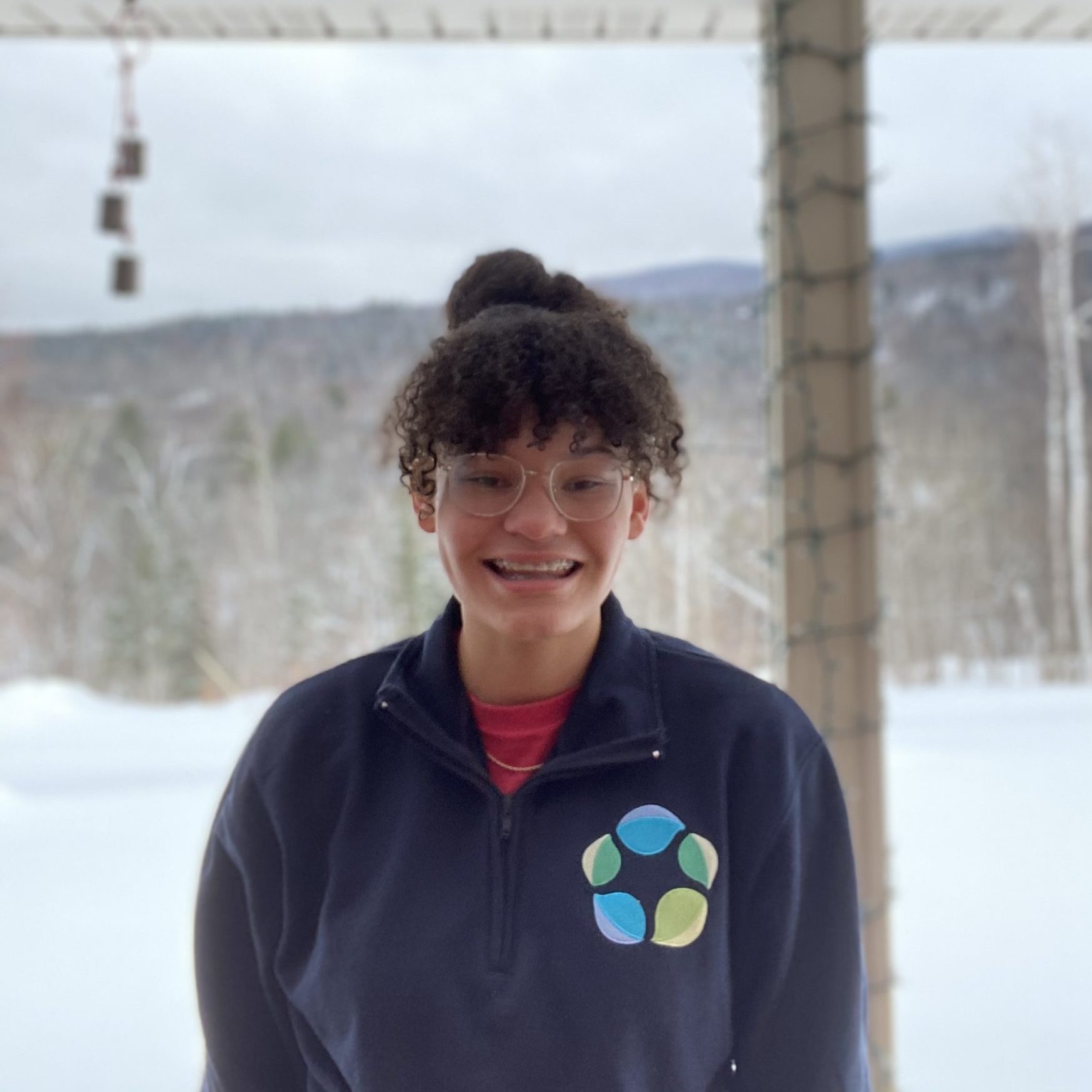
Prior to this project, had I been told that I would spend the better part of late 2020/early 2021 doing data analysis, and enjoying it, I would have become fearful at how bad the pandemic would get. To me, data analysis always represented a boring necessity that people who liked tweaking algorithms or organizing Excel spreadsheets revelled in. It just wasn’t my cup of tea.
I have no background in applied statistics, and barely any knowledge on the agriculture industry. In fact, my prior experience with farming was limited to watching my uncle rotate his cows through different pastures, walking next to them and occasionally using a cattle prod. I had no knowledge of the extent of large-scale farms, what made them efficient, or that they affected the environment outside of GHG emissions and water usage. Oh, how that has changed. I can now confidently talk about intensive poultry farms, the details of Label Rouge certifications, and the inter-relatedness of all of the environmental indicators we covered.
This ELO has been an amazing experience. I learned the obvious skills one would expect from a data analysis job: understanding what an R^2 value means, looking for meaningful trends, and delving into the studies for relevant context and data. I’ve also gained unexpected skills. I now know how to condense information into varying lengths, since we wrote up a scientific paper (long and detailed), a website (short but informative), gave a presentation (time sensitive but very detailed), and typed up a paragraph summary of our findings. I’ve also learned how to work on a team, virtually. The collaboration needed for a project this size is immense, and I was able to appreciate team dynamics like leaning on each other for help, or ramping up the work in the event that someone couldn’t contribute for a specific week.
In addition to my wonderful teammates, I want to thank Dr. Emily Moberg and Dr. Gabriela Serrato-Marks for being our mentors on this project. They provided amazing support, both moral and technical. I have no idea where we’d be without Emily’s feedback, which helped direct us to start looking at specific commodities, or Gabi’s workshop on Excel. Their patience was unmatched as they continued to meet with us and push our work to exceed our own expectations, and they even used their networks to bring in colleagues for feedback. Thank you both, so much. You’ve helped me grow as a junior analyst, and as a team member. You both are wonderful mentors and I’m so glad I had the opportunity to work with you.
Remi O. Harrison
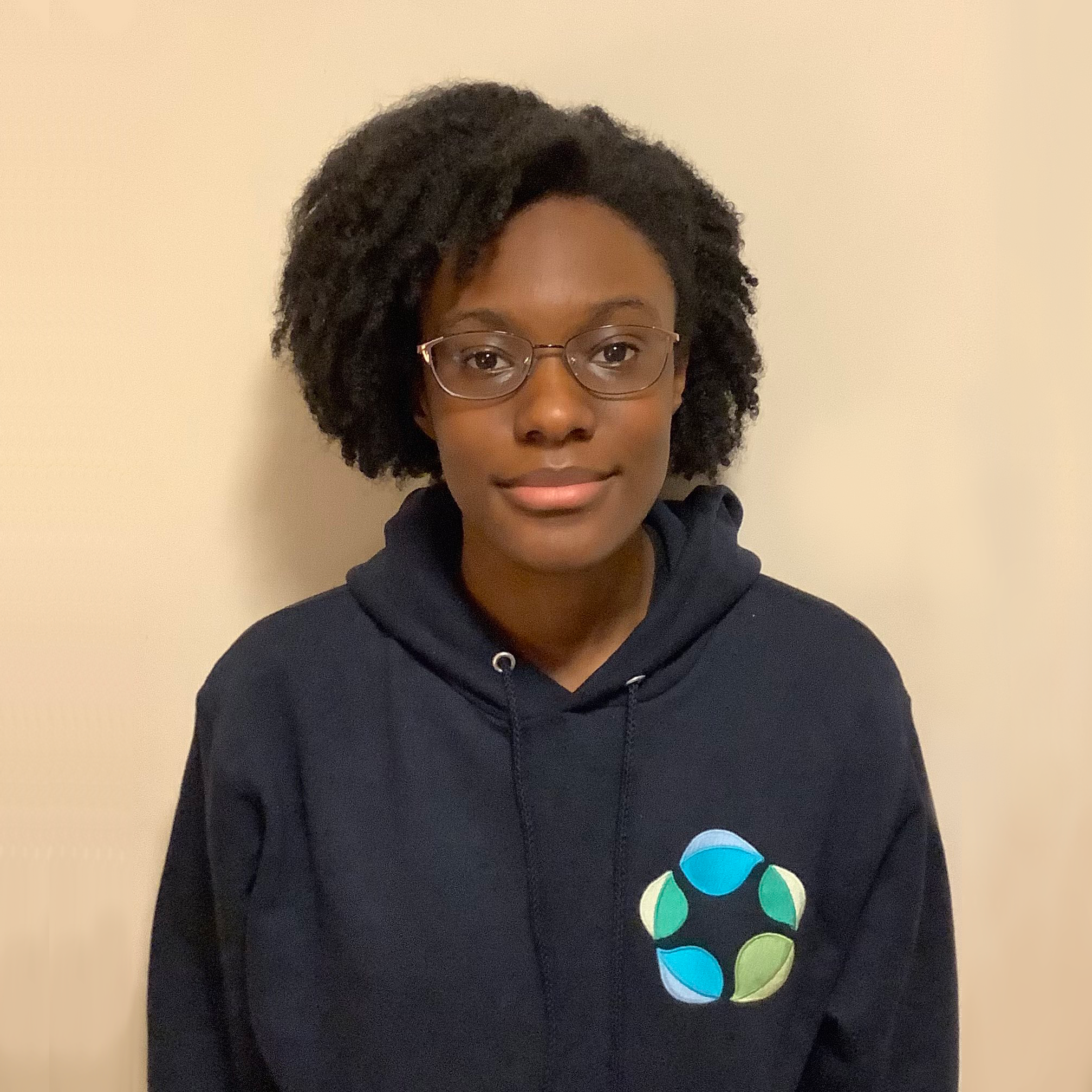
Being able to work on a project like this has been a dream come true for me; I've been interested in sustainability—or "saving the earth," as I put it back then—since I was a child, but I never got the chance to do much beyond, say, recycling and reducing water use. Unlike many of my teammates, I did have a bit of experience with data visualization and statistics before joining this project; however, I didn’t know very much about how and why agriculture could have a negative impact on the environment, and I was excited to learn. In figuring out what the different environmental factors meant and how they translated to actual consequences, I learned a lot about the delicate balance of our environment. We hear a lot about "greenhouse gases," "climate change," and occasionally "deforestation," but rarely do things like "eutrophication" make the news. It was also striking to me that coffee production in certain regions was also in danger due to climate change. While it makes sense, it was interesting to see that even though economic reasons and practicality are touted as reasons not to switch to sustainable practices en masse, these arguments break down in the long run.
In addition to learning about agriculture sustainability, I also learned a lot about working on a team; gone are the days of group projects where only one person does all the work—we all needed to do our part here. Even though working on this project together virtually was difficult, we overcame the pitfalls of Zoom calls together, and I imagine that the connections we formed will only strengthen when we get on campus.
Of course, I could never end this without giving a big thank you to Dr. Emily Moberg for giving us a sense of direction and being willing to take us under her wing for this project, and Dr. Gabi Serrato-Marks for her masterclass on Excel; while I conducted most of my analysis in Python, I still needed to consult the spreadsheet regularly, and that Zoom meeting where she taught us all the ins-and-outs of the software helped immensely.
Sydney Paige Kim
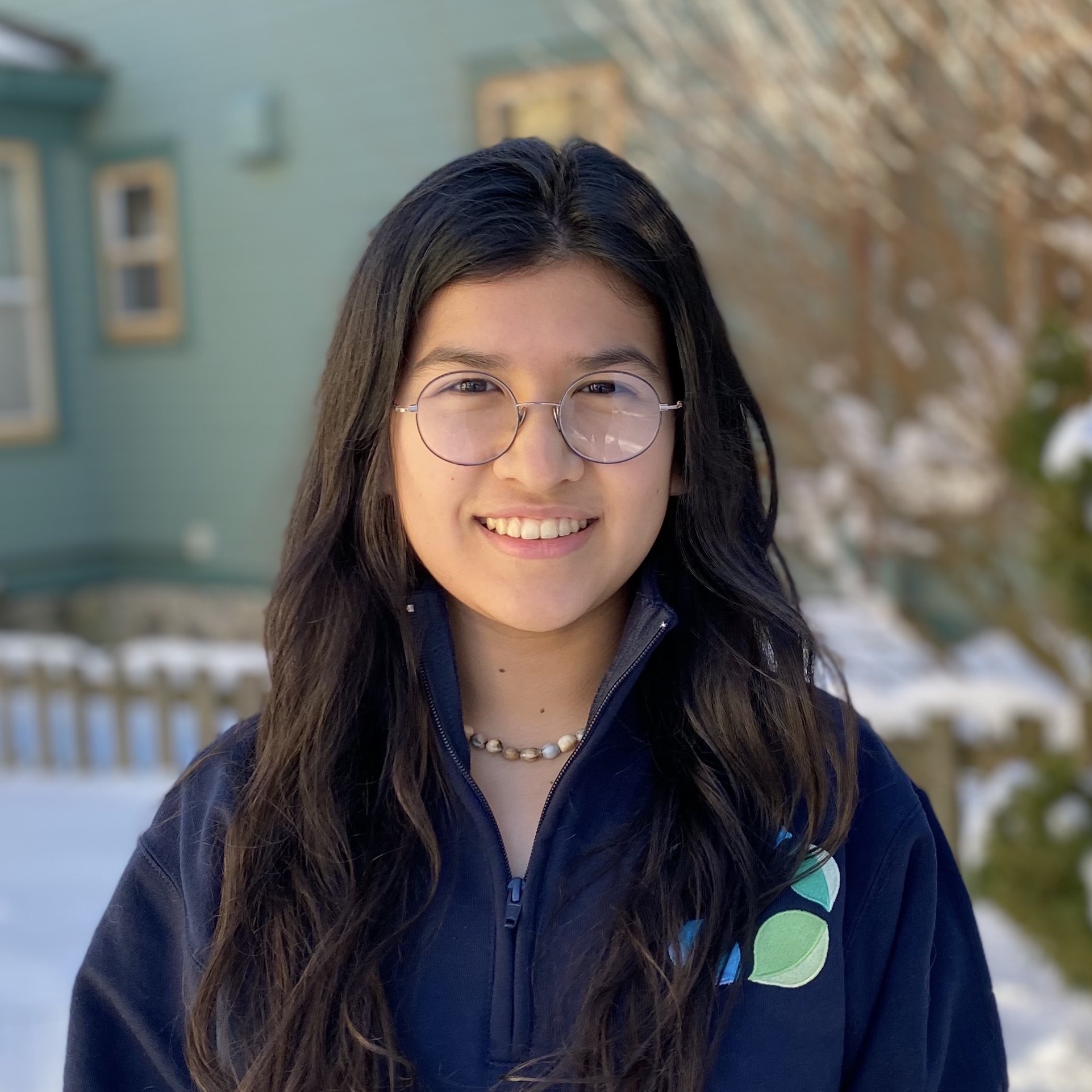
Last week, I opened my freezer and picked up a bag of shrimp. I scanned the packaging for production information––were the shrimp extensively or intensively farmed? Were they from China or Brazil? Then, I thought about how manufacturing the plastic packaging involved burning fossil fuels, and how it was likely destined to be dumped into the ocean and harm marine organisms.
When our team first started this project, I would not have thought to consider the environmental impacts of food. Actually, I never paid enough attention to the climate crisis itself to feel more than mildly concerned. I was raised to be conscious of my energy and water use, but this project, in combination with a class I took about the biodiversity crisis this semester, forced me to open my eyes and see just how much we abuse our planet. For years, I dreamed of working in the aerospace industry, but after just one semester studying agricultural acidification, reading IPCC reports, and scrolling through NASA heat maps, my worldview has completely changed. Really, I can no longer justify using my education to launch people and objects off the surface of the Earth when the planet itself is burning.
I started this project with no prior research experience, but with Emily and Gabi’s support and patience, I learned how to use Excel, analyze data, and communicate my findings. I am also incredibly grateful for my teammates. As a group, we are scattered across the country, but we have managed to collaborate, support each other, have fun together, and build friendships despite the distance. Through this project, I feel that I have grown so much, as a researcher, person, scientist, and global citizen and am so grateful to have had this experience.
Katherine LiYue Pan
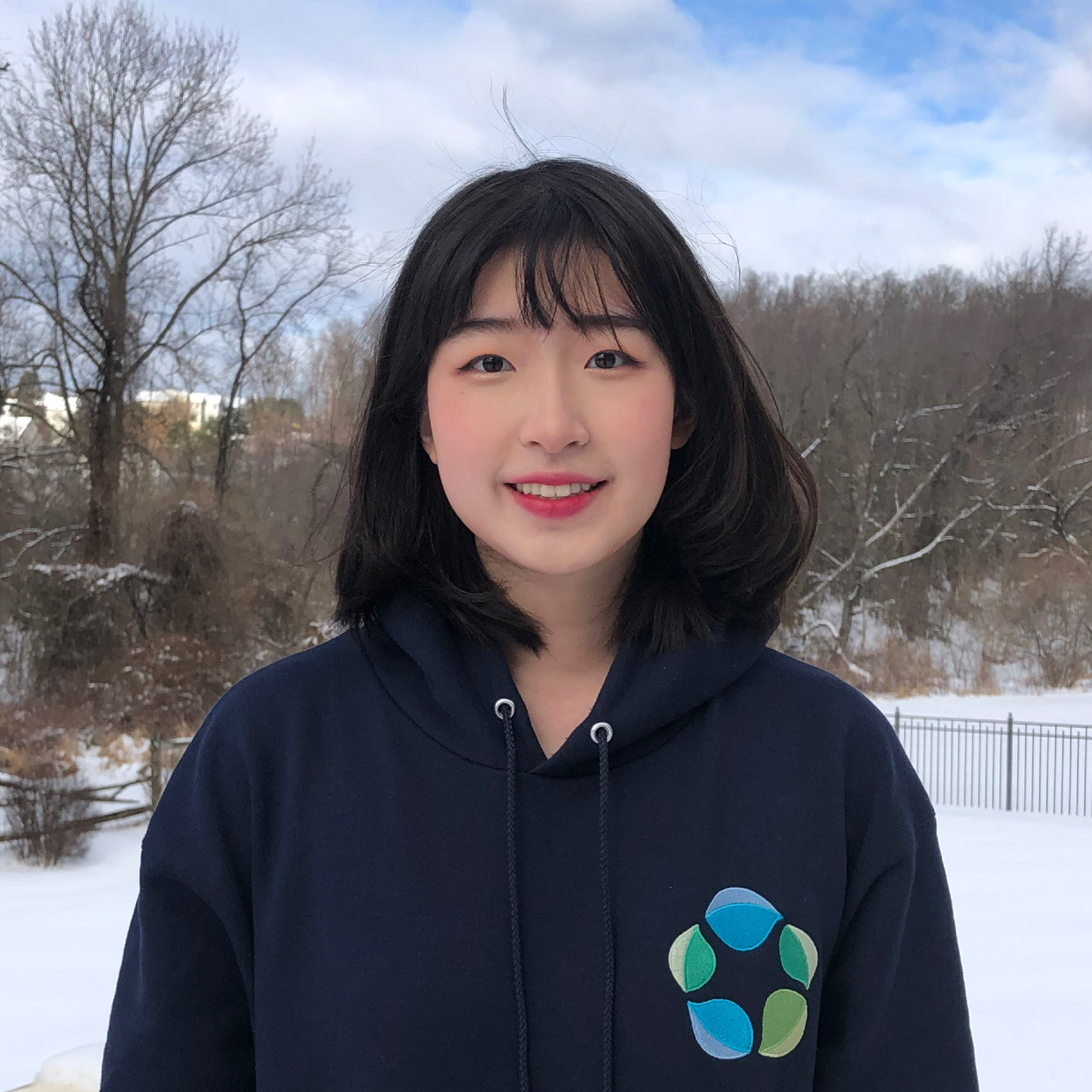
Much like my fellow peers, I came into this project as a blank slate in terms of research — my only experience with data analysis was a rusty recollection of tenth grade AP Statistics. Excel was a foreign concept to me, as was the intricate methodologies of the agricultural sector. Though I felt I knew more than the average person about environmental efforts given my past interests and involvement in conservation, I quickly learned in the first stages of my research that there was even more to the difficult balance of environmentalism than meets the eye.
Throughout the process of this project, I’ve not only explored and mastered the above skills, but also learned the ropes of working in a group environment despite being physically thousands of miles apart. Our research project’s journey was a bit unlike most traditional first-time research experiences, I’d say, as it was mostly student-led and self-designed from the beginning. Such a hands-on approach really opened my eyes to the interconnectivity of global agriculture — as I chased down different data points to understand the process better, I learned how almost everything in this world affects each other, be it individual cofactors within a commodity’s production, or how different commodity impacts trickle into other commodities through vehicles like feed.
As well as gaining insight on educational topics, I’ve found myself a wonderful community to both work and play together with as well. I extend my eternal thanks to Yeji for sending the first message looking for ELO teammates when I was too shy to do it myself — on that day she catalyzed the formation of a team that spends contentful nights both poring over data and papers together as well as planning a cross-country cornfield expedition during much-needed breaks. They all are the best people I could have ever asked to meet (perhaps not yet in person, but after spending so much time together on Zoom, I’d argue that it’s the same experience).
Of course, we couldn’t have done this without our amazing mentors Dr. Moberg and Dr. Serrato-Marks — they’ve done a spectacular job of letting us grow under our own leadership but guiding us in creating a product we could all be proud of. After all, I’d probably still be floundering about in the abundance of new technologies and skills if it weren’t for Dr. Serrato-Marks teaching me to “excel at Excel” or Dr. Moberg answering every question I emailed her at 2AM asking about strange points in my data clearly and promptly. For this, I’d like to thank them immensely. I’ve grown so much as not only an analyst, but as a writer, environmentalist, and scientist under their care — and I firmly believe all of our teammates will say the same.
Evan Seeyave
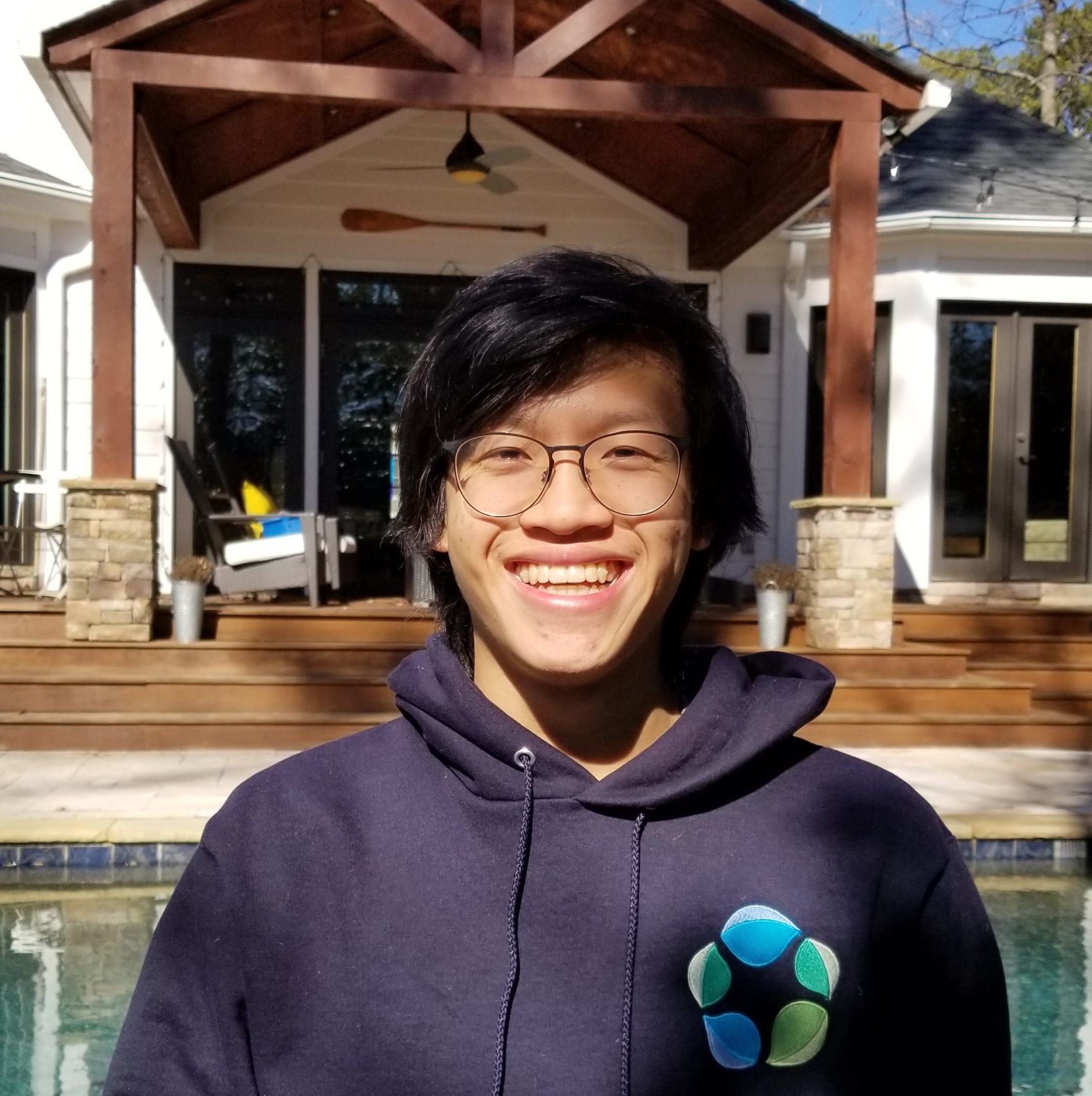
Before joining the team to work on this ELO, I had worked on some projects in the past, but they were all much smaller in scope. I had used Excel before, but I only knew the very basics. For this project, I processed data using Pandas, Numpy, and Matplotlib, Python libraries that I was unfamiliar with before. I have learned a lot about manipulating data and data visualization. I did not and still do not have a very strong environmental science background, so this project has been a fantastic way for me to learn more about environmental indicators and the impacts of agriculture on the environment. In particular, I have learned a lot about palm oil. I have always heard from time to time about palm oil contributing to GHG emissions and in some way impacting the environment, but I never understood how. After researching previous findings and creating some of my own work, I feel much more knowledgeable about the impacts of palm oil on the Earth’s environment. Presenting the information that I have found has helped me to further reinforce what I have learned. I also have learned a lot about all the other commodities from my fantastic peers.
I am really thankful for all my teammates who have all supported me and have supported each other. I am glad to have worked with this team, and I think we have been able to work well with our different skill sets and strengths. In addition, I have been able to create great friendships with all my groupmates. I am also extremely grateful for our mentors, Emily and Gabi. They have helped us through this entire project and have dedicated so much time meeting with us, providing advice and guidance always. Our project would not have been the way it is now without them.
One thing I didn’t realize was how difficult writing a research paper actually is, especially in teams. Before MIT, I had written papers before, but they were all guided and had a clear goal and direction to take. This was much more open-ended, so there were different approaches we could take. It was a great experience conducting real-world research, and I am excited to work on more projects like this in the future. This project has been a lot of fun, and it has also been fulfilling. Doing research for the WWF, an organization I have always looked up to, has really been an honor.
Daniel L. Tong
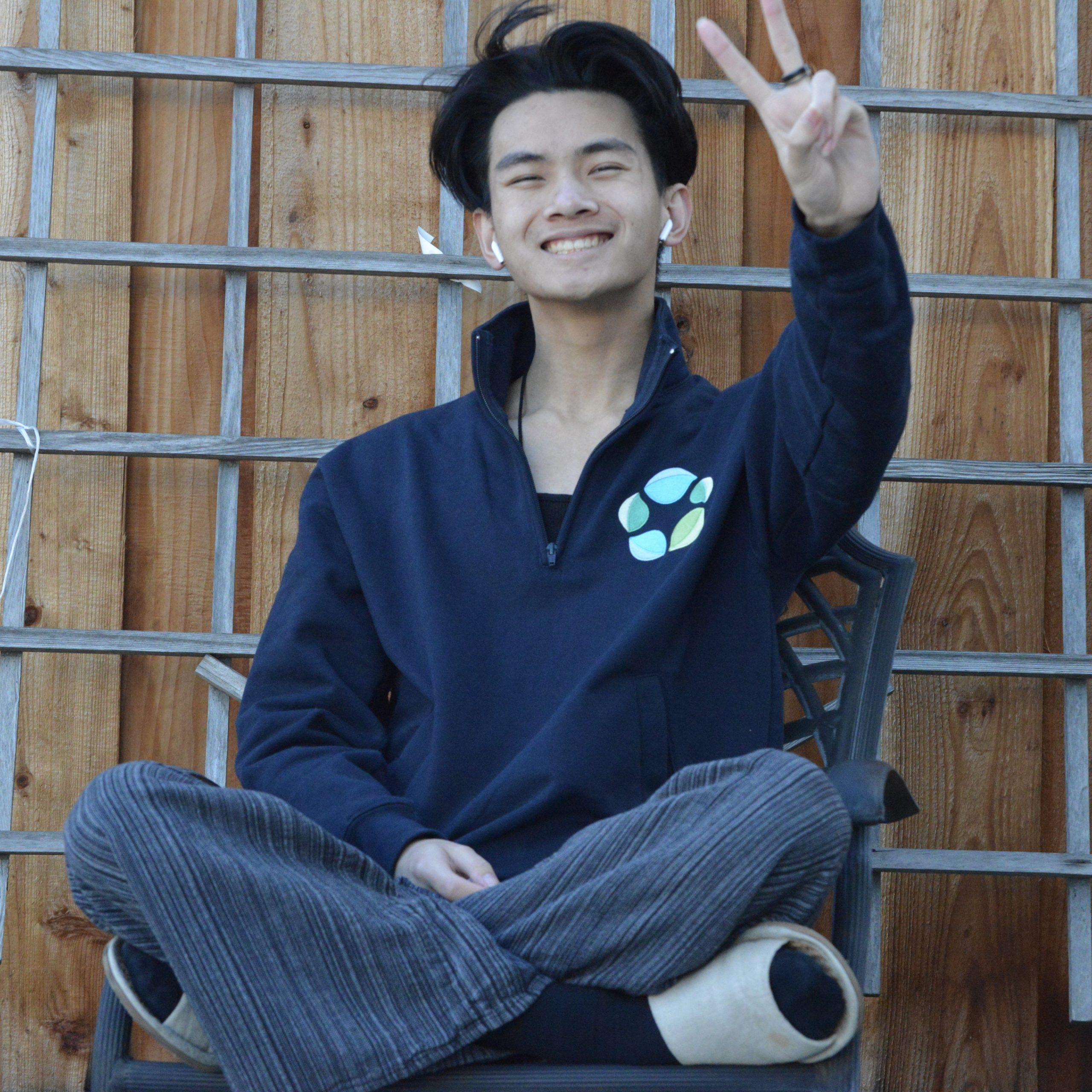
Stepping into the project was definitely very daunting; from the first day on the Discord channel, hearing all of the people talk about possible ideas, my imposter syndrome kicked into overdrive. But fast forward 7 months, 46 custom Discord emotes, and probably way too many “Cattle are wasteful” jokes later, the project is still daunting but at least I had some friends to tackle it with.
The project was definitely a memorable experience. I have always tried to involve myself with environmental activities, but the extent of it was either participating in or organizing community service events with friends (or convincing them to go vegan with me as a competition). It was exhilarating to be in a researching position for the first time but again, I have low self esteem so I was also anxious for the first few months until the team got more comfortable with each other (greatly in part to 12.000). I could talk about the satisfaction of finally learning how to use Excel or finally having the puzzle pieces in my head click when trying to interpret the data sheet, but those experiences don’t even begin to compare to the teamwork aspect of the project. The post-meeting zoom calls where we decompress from whatever practical project-related discussions we had were filled with some of my favorite moments of the whole semester and spawned some of the best inside jokes we have together. Listening to rants about how difficult research on a certain commodity is transforming into a completely unrelated topic, followed by everyone else jumping in with their own tangents was just one of the many lovely moments.
But truly, I am extremely grateful that I got to have this experience to understand the environmental impacts of the agriculture industry more. It fueled my desire to pursue a career like this even more and helped me get a taste of what that career would be like. I cannot stress enough how thankful I am to Emily and Gabi for bearing through the semester (and a little extra time) with us, and making this project something worthwhile. It absolutely was not possible for us to make something even comparable to this without their help, and I will always attribute my start in the field to their help. Also, my fight-or-flight response triggers when I pass by edamame in the supermarket.
Daniela L. Vallejo

The opportunity to work on this project has truly changed my perception of the commodities in my life. I had some prior knowledge of the impacts of agriculture on the planet, but particularly in the case of roundwood, because it is inedible I hadn’t quite thought of it as an agricultural product. Now as I look around my room, I realize that everything from books, to the desk, to the framing of the house itself is a product of roundwood silviculture. Similarly, I had no prior awareness of the significance of the eutrophication or acidification potential footprint of any of the commodities in my life. In this manner, exploring the relationship between our five environmental indicators has helped me to develop a more well rounded understanding of sustainability. I am now more skeptical of oversimplification in environmentalism and feel better equipped to advocate for sustainability in the future.
The process of searching the literature for data has also been a very illuminating experience. The lack of certain data in particular led me to realize just how many areas across scientific disciplines are in need of further research. This was particularly surprising when considering how the impact of particular subject matters may not always relate to the availability of research on the topic. I will keep these things in mind as my career develops.
On a more personal note, this project has facilitated the formation of friendships during a time when interpersonal connections are difficult to create and maintain. The passion and commitment of my teammates has been a great source of inspiration. I am particularly grateful for the guidance and mentorship of Emily and Gabi, without whom this project would not have been possible. The amount of time they have devoted to meeting with us and reviewing our work has enabled us all to thrive.
Emily Moberg (Mentor, World Wildlife Fund)
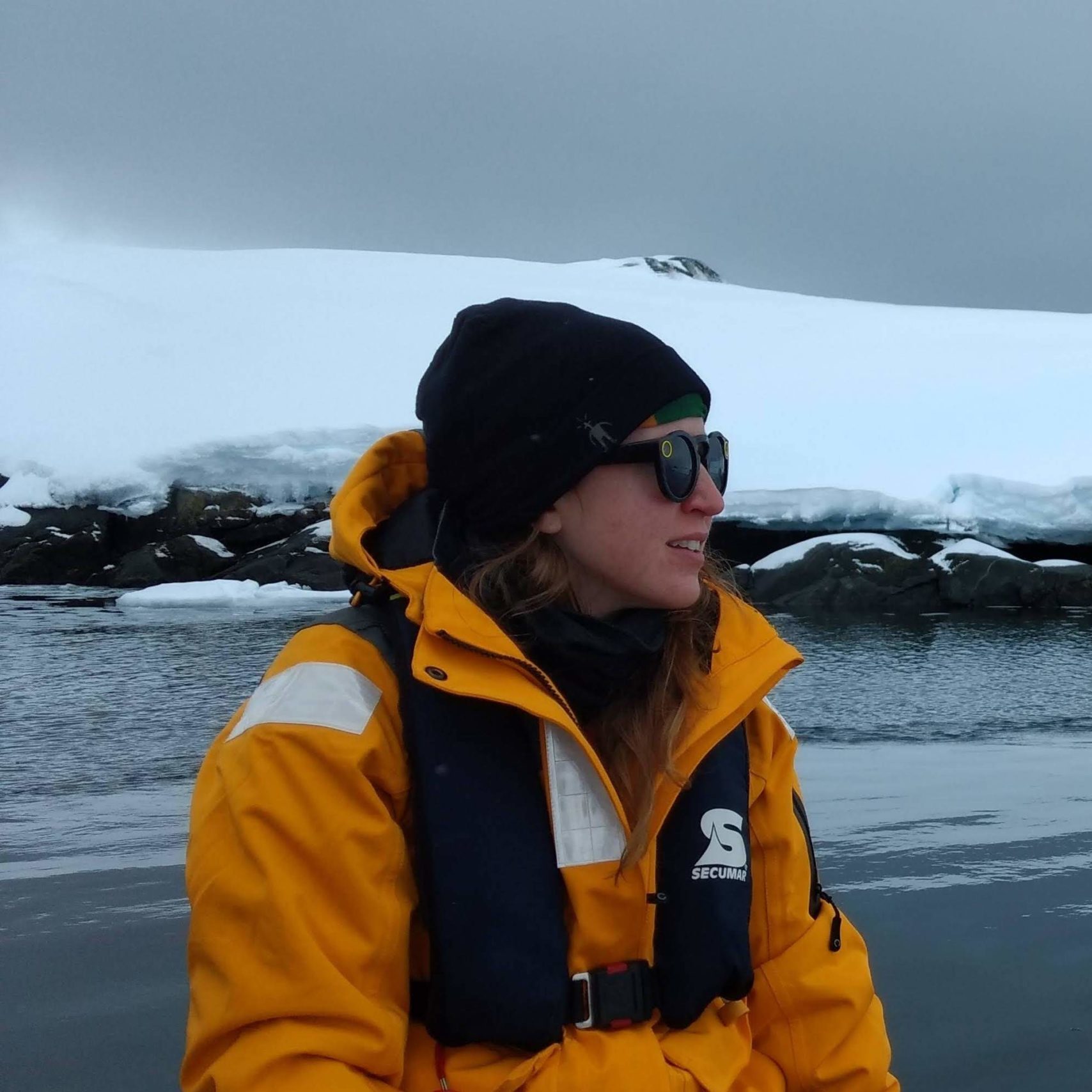
The students who produced this work self-organized the summer before their first-year year at MIT — virtually because of the Covid pandemic. They knew they wanted to contribute to a problem that mattered, and identified the environmental impacts of agriculture as a critical area for the future of both food security and ecosystem health.
They co-developed the scope of this project with me over the course of several months and then they dived into their research. They researched what palm oil, shrimp, roundwood production systems were, what the supply-chains looked like. They researched what the environmental impacts from agriculture are, asking questions like "are CO2 emissions really comparable to methane emissions?" that the scientific community is grappling with as well. They worked to extract data, standardize it, and make graphs in programming languages they were learning alongside this project. They wrote pages of text explaining what they did and, more critically, what it means for conservation action.
And they did all of this as they tackled their first semester in college.
The work they did is impressive in its breadth and thoroughness. It is fascinating and insightful, and I have learned so much from this team and their work. I am proud to have worked with every single one of this talented, creative team.
And I believe that if these students are the future for our planet, it is a bright future indeed.
